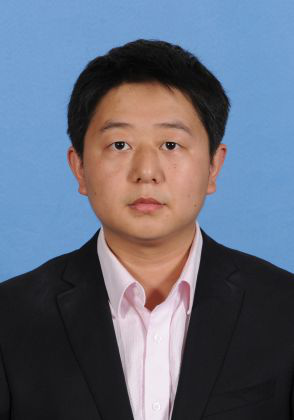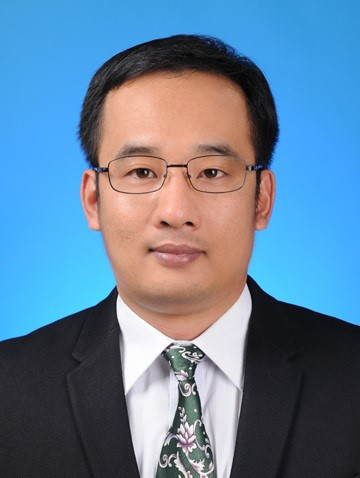2021 IEEE Congress on Evolutionary Computation (IEEE CEC) Special Session on “Brain Storm Optimization Algorithms”
Table of Contents
Overview
The Brain Storm Optimization (BSO) algorithm is a new kind of swarm intelligence algorithm, which is based on the collective behavior of human beings, that is, the brainstorming process. There are two major operations involved in BSO, i.e., convergent operation and divergent operation. A "good enough" solution could be obtained through recursive solution divergence and convergence in the search space. The designed optimization algorithm will naturally have the capability of both convergence and divergence.
BSO algorithm possesses two kinds of functionalities: capability learning and capacity developing. The divergent operation corresponds to the capability of learning while the convergent operation corresponds to capacity developing. The capacity developing focuses on moving the algorithm's search to the area(s) where higher potential solutions may exist while the capability learning focuses on its actual search towards new solutions from the current solution for single-point based optimization algorithms or the current population of solutions for population-based swarm intelligence algorithms. The capability learning and capacity developing recycle to move individuals towards better and better solutions. The BSO algorithm, therefore, can also be called as a developmental brain storm optimization algorithm.
The capacity developing is a top-level learning or macro-level learning methodology. The capacity developing describes the learning ability of an algorithm to adaptively change its parameters, structures, and/or its learning potential according to the search states of the problem to be solved. In other words, capacity developing is the search potential possessed by an algorithm. Capability learning is bottom-level learning or micro-level learning. The capability learning describes the ability of an algorithm to find better solutions from current solutions with the learning capacity it possesses.
The BSO algorithm can also be seen as a combination of swarm intelligence and data mining techniques. Every individual in the brain storm optimization algorithm is not only a solution to the problem to be optimized, but also a data point to reveal the landscapes of the problem. The swarm intelligence and data mining techniques can be combined to produce benefits above and beyond what either method could achieve alone.
Topics of Interest
This special session aims at presenting the latest developments of the BSO algorithm, as well as exchanging new ideas and discussing the future directions of developmental swarm intelligence. Original contributions that provide novel theories, frameworks, and applications to algorithms are very welcome for this Special session.
Potential topics include, but are not limited to:
- Theoretical aspects of BSO algorithms;
- Analysis and control of BSO parameters;
- Parallelized and distributed realizations of BSO algorithms;
- BSO for multiple/many-objective optimization;
- BSO for constrained optimization;
- BSO for discrete optimization;
- BSO for large-scale optimization;
- BSO algorithm with data mining techniques;
- BSO in uncertain environments;
- BSO for real-world applications.
Submission
Please follow the IEEE CEC2021 instruction for authors and submit your paper via the IEEE CEC 2021 online submission system. Please specify that your paper is for the Special Session on Brain Storm Optimization Algorithms.
Recent Development
1.Lianbo. Ma, Shi Cheng and Yuhui Shi. Enhancing Learning Efficiency of Brain Storm Optimization via Orthogonal Learning Design, IEEE Transactions on Systems, Man, and Cybernetics: Systems, 2020, DOI 10.1109/TSMC.2020.2963943.
2.Shi Cheng and Yuhui Shi (2019). Brain Storm Optimization Algorithms: Concepts, Principles and Applications, Vol. 23. Adaptation, Learning, and Optimization. Springer International Publishing AG. isbn: 978-3-030-15069-3. doi: 10.1007/978-3-030-15070-9.
3.Shi Cheng, Lianbo Ma, Hui Lu, Xiujuan Lei, and Yuhui Shi (2020). Evolutionary computation for solving search-based data analytics problems, Artificial Intelligence Review, in press. doi: 10.1007/s10462-020-09882-x.
Organizers

Shi Cheng, Shaanxi Normal University, Xi’an, China, cheng#snnu.edu.cn
Shi Cheng received the Bachelor's degree in Mechanical and Electrical Engineering from Xiamen University, Xiamen, the Master's degree in Software Engineering from Beihang University (BUAA), Beijing, China, the Ph.D. degree in Electrical Engineering and Electronics from University of Liverpool, Liverpool, United Kingdom in 2005, 2008, and 2013, respectively. He is currently an associate professor with the School of Computer Science, Shaanxi Normal University, China. His current research interests include swarm intelligence, multiobjective optimization, and data mining techniques.

Lianbo Ma, Northeastern University, Shenyang, China, malb#swc.neu.edu.cn
Lianbo Ma (Member, IEEE) received the B.S. degree in communication engineering and the M.Sc. degree in communication and information system from Northeastern University, Shenyang, China, in 2004 and 2007, respectively, and the Ph.D. degree in mechanical and electronic engineering from the University of Chinese Academy of Sciences, Beijing, China, in 2015. He is currently a Professor with Northeastern University. His current research interests include computational intelligence and machine learning.

Yuhui Shi, Southern University of Science and Technology, Shenzhen, China, shiyh#sustech.edu.cn
Yuhui Shi received the Ph.D. degree in electronic engineering from Southeast University, Nanjing, China, in 1992. He is a chair professor in the Department of Computer Science and Engineering, Southern University of Science and Technology, Shenzhen, China. He is a Fellow of the IEEE. His main research interests include the areas of computational intelligence techniques (including swarm intelligence) and their applications. Dr. Shi is the Editor-in-Chief of the International Journal of Swarm Intelligence Research.
